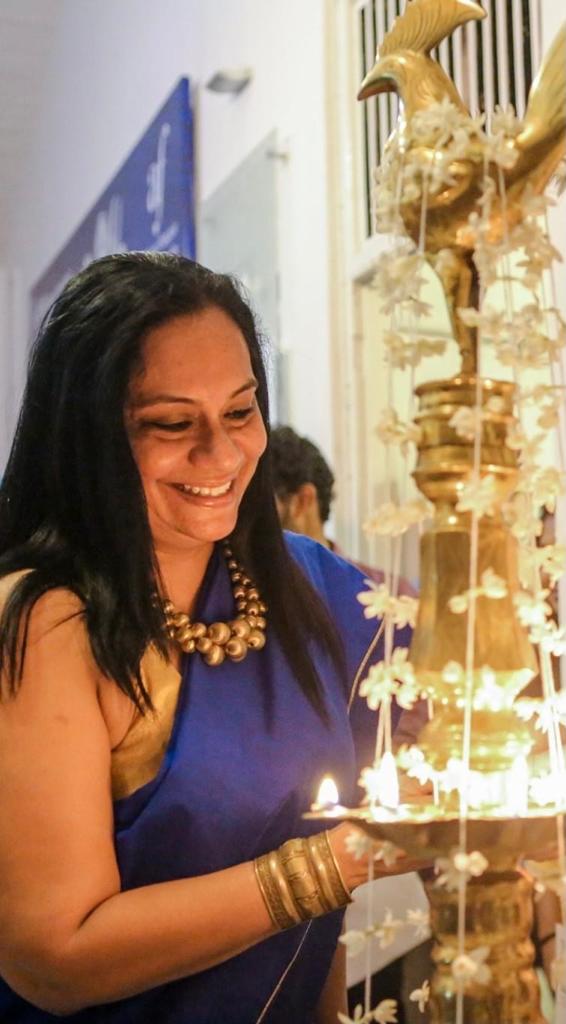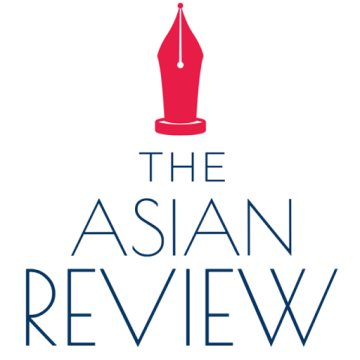
By Sakshi Selvanathan
Professor Niroshini Gunasekera is a veteran in French language studies, teaching it in Sri Lankan universities and educational institutes for more than three decades. She has also written her own novels and has translated many French novels into Sinhala.
Interview
We would love it if you could tell us a little about yourself, your writings and interests.
I am a Senior Professor in French at the Department of Modern Languages, University of Kelaniya, Sri Lanka. I have worked there for over 30 years. My main interests are French literature, Francophone Literature, Comparative Literature and Translation. I have translated 8 novels from French to Sinhala and have won the Prashastha Award for my translation of ‘Un barrage contre le Pacifique’ by Marguerite Duras at the State Literary Awards in 2005. All literary works that I have translated are from the contemporary French authors. In addition to translating, I have recently (in 2020) published my very own novel in Sinhala.
Where can we find your works and in which territories have they been showcased?
They are available in most of the book stores in Sri Lanka.
What fascinates you about the French language and how did you make the decision to pursue the study of it further and also teach it?
It’s a beautiful story about a French family known to my father who offered me a French-English dictionary when I was in Grade 8 or 9. That created an awareness of French as a language to me. When I got through my O/L exam, I had good results that would have allowed me to choose any study stream but I said I wanted to do languages – namely French. I started learning French at Devi Balika Vidyalaya in Colombo and I am grateful to my mother for introducing a lecturer to come and teach us French after school. It was the beginning of the languages stream in our school. Becoming a French teacher happened automatically because I got good results. I was offered a post of Temporary Lecturer at Kelaniya University after we got our final results. I was then appointed Probationary Lecturer and I settled down there. Parallelly, I was also offered a teaching post at the Alliance Française de Colombo where I worked for over 15 years until I decided that I wanted to spend more time with my children.
What is your take on the importance of translations for books written by authors around the globe?
Personally, I translate books that I have read and liked. I have this passion of sharing with others what I think is interesting.
Other than that, I think reading translations enables people to travel virtually. It widens the horizons, it is enriching, and it is an introduction to foreign cultures. Translation is a cultural affair. Translations make us see what we wouldn’t see if we do not know people of another land, another culture. It makes us familiar with aspects that we never knew that existed.
Throughout your career, what are the challenges you have encountered when translating books?
In translating books into Sinhala, sometimes I come across terms that cannot be simply expressed in Sinhala. Let’s take the simple example of “Ils font l’amour” which means in English “They made love”. How can we say this in simple Sinhala words? We cannot because we don’t talk about it in ordinary writeable language.
Cultural terms are not very foreign to me where French is concerned. I am familiar with most of it. If I am not, there’s the internet to provide us with answers. But your knowledge should be sufficient enough for you to choose which term goes with the original term – by which I mean, one word could have different definitions. One concept could be interpreted in different manners. The translator should be competent enough to know what he/she is looking for.
How far is it actually feasible of capturing everything an author writes about in another language?
Untranslatability exists. Certain practices cannot be translated simply because they do not exist in other cultures. Then we have to use the technique that Lawrence Venuti called ‘Domestication’. We must find a “closer to the target audience term” that expresses almost the same thing as the original thing. If not, we could also use the Foreignizing strategy that Venuti talks about and add a footnote (though this is not considered as the best strategy) or an explanation incorporated into the text etc. What is important is communicating the original message as much as you can.
Among the works you have contributed to, is there one that holds special significance to you?
It’s as if you are asking which child I prefer out of my two children. I love all of them!
What is your opinion on the need for people to engage in the creation (or consumption) of the literary arts amidst the ongoing (and rather stressful) COVID-19 pandemic?
Sadly enough, people have got used to reading very short Facebook stories, memes or watching short videos. They are more into current news than into literary works. There’s panic, there’s an urgency to know quickly and in the shortest possible way. They should think of other things, read a novel, watch a film and get away from the suffocating situation but they don’t seem to have the peace of mind to do that. They should, but will they?
What can followers of your work expect in the near future?
More translations and certainly more novels, because people seem to appreciate my novel a lot. Many people have told me to write more. So I will write more…
Categories: Interviews














Pretty! This hass been an extremely wonderful post.
Thans for providing this info.
LikeLike
Hey! This is my first comment here soo I just wanted to give a quick
shout out and say I truly enjoy reading through your articles.
Apprecioate it!
LikeLike
I do not even know how I ended up here, but I thought this post was great.
I don’t know who you are but certainly you aare going to a
famous blogger if you are not already 🙂 Cheers!
LikeLike
Hello, I enjoy reading all of your article. I like to write a little comment to support you.
LikeLike
Nice post. I was checking continuously this blog and I’m impressed!
Veryy useful information specialy the last pat 🙂 Icare for such
info a lot. I was looking for this particular information for a long time.
Thank you andd best of luck.
LikeLike
Hi there to evey body, it’s my first go to see of this webpage; thnis webpage contains
amazing and really excellent data in support of readers.
LikeLike
Very usefull blog, I like it. It seems online top-up also becoming very popular.
LikeLike
I ejoy what you guys are usually up too. Thiss type of clever work andd reporting!
Keep up the very good works guys I’ve added you guyss to my
own video.
LikeLike
Great delivery. Great arguments. Keep up the amazing spirit.
LikeLike
I love this post, got usefull information. Also, I found best online mobile recharge website here
LikeLike
I enjoy reading through your website. Thanks!
LikeLike
Ido not even know hoow I ended up here, but I thought thjs pst was great.
I don’t kow who you are but certainly you are going to a famous blogger if you
are not already 🙂 Cheers!
LikeLike